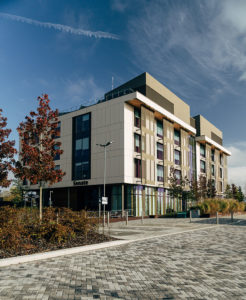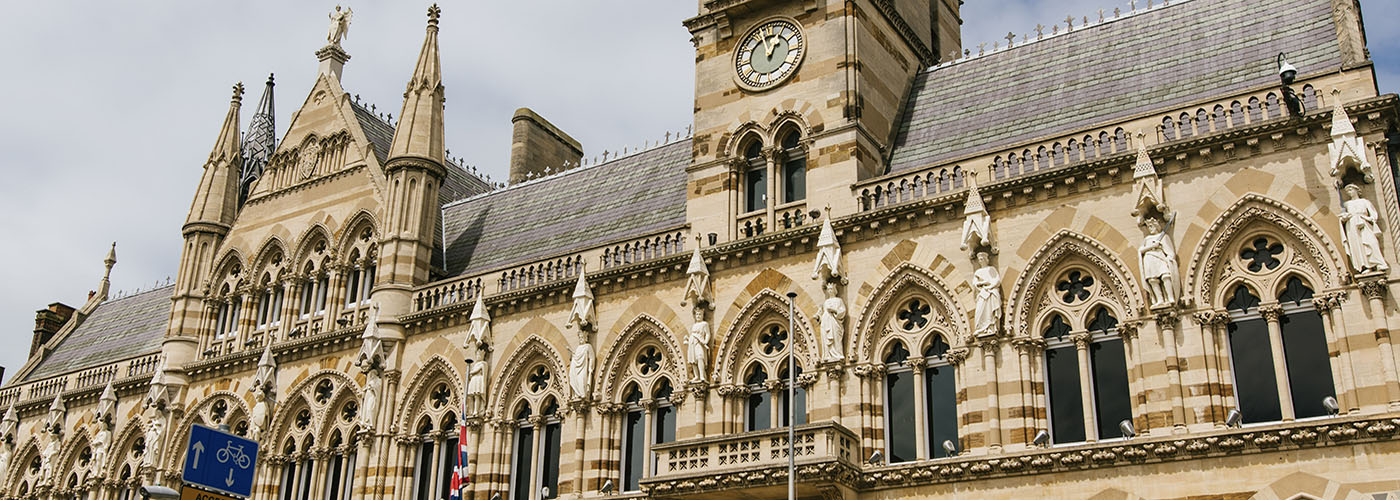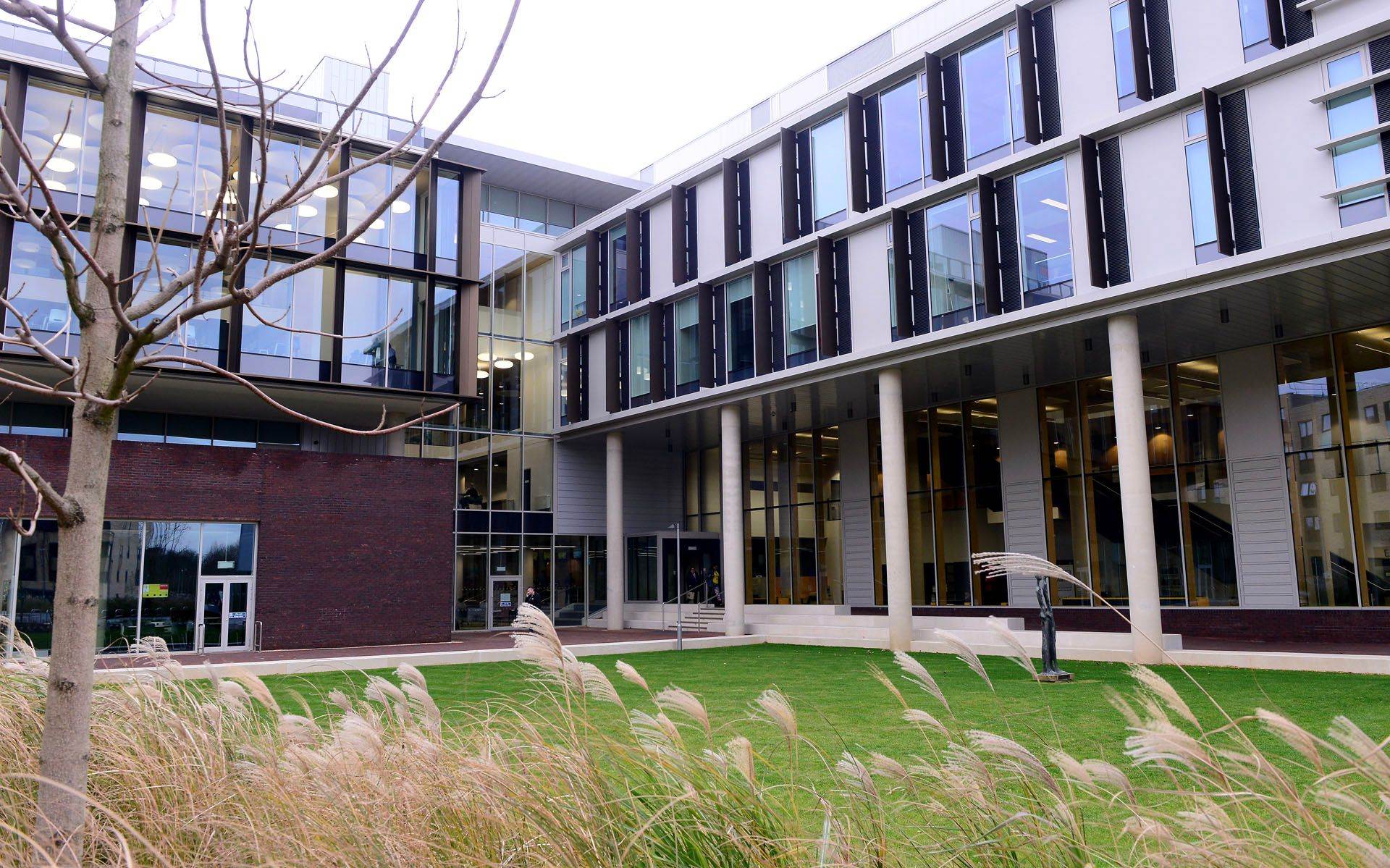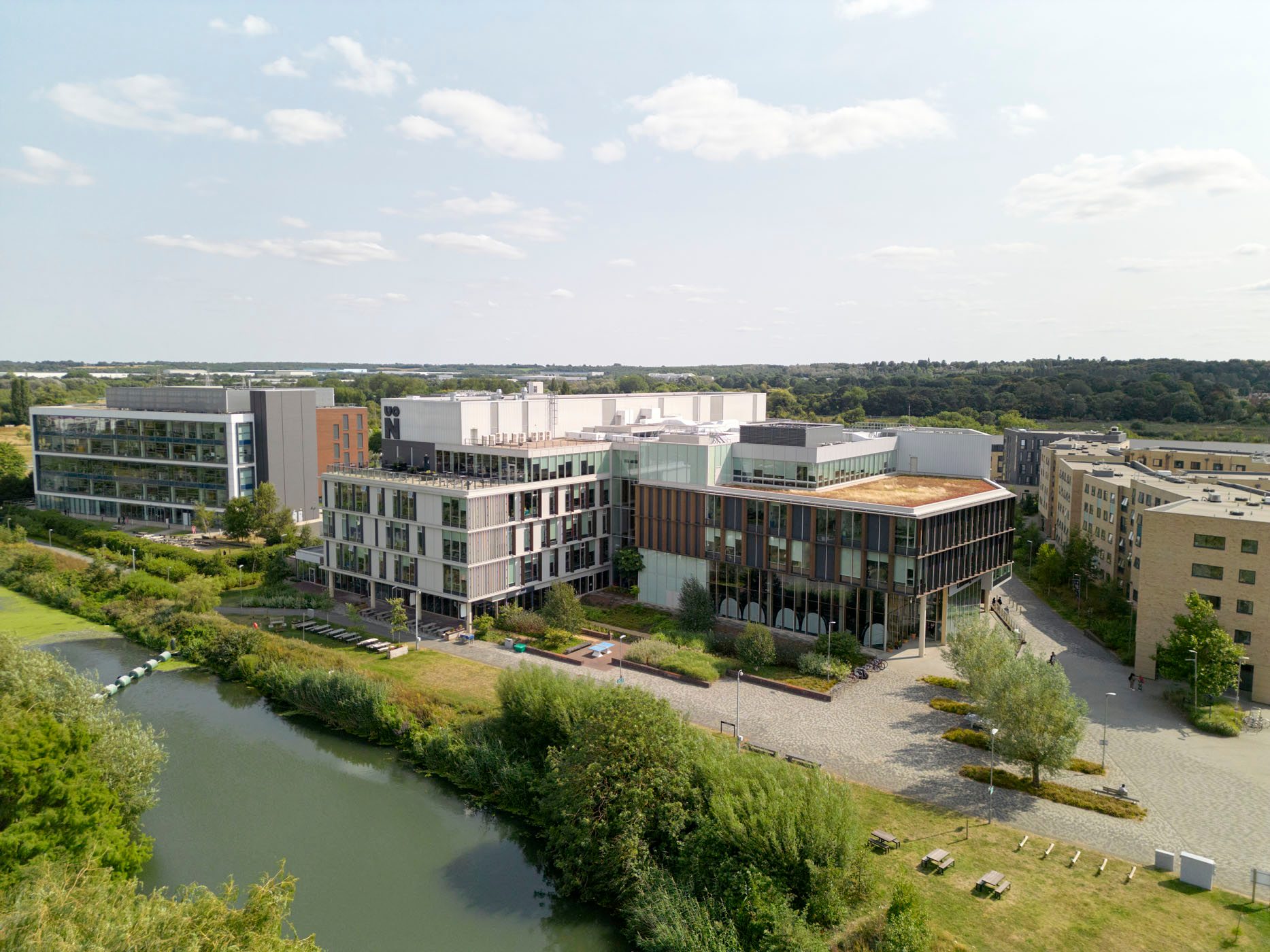
The main reception for the University and additional teaching spaces.
Explore our campus, including our modern accommodation and innovative course facilities on our virtual tour.

Level
Master'sPG MA
Duration
Full Time: 1 Year
Starting
September
£8,500
£17,495
Waterside
Updated 27/03/2025
Updated 27/03/2025
For questions regarding study and admissions please contact us:
study@northampton.ac.uk
0300 303 2772
Please note this course has closed recruitment for 2025.
In today’s society the emergence of transnational economies, increased global communications, the movement of people, cultures and ideas are reshaping the notions of citizenship and community. With this the increase in sectarian violence and new fundamentalisms are challenging security on an individual to international level. With this in mind, there has never been a more interesting time or a greater need for the study of International Relations.
The University of Northampton’s International Relations masters course gives you a thorough and sensitive knowledge of interests, ethnicities and cultures allowing you to understand the global condition.
Image shows external view of the multi-storey Senate building, which features many large windows. In the foreground is a tree and purple flowers. The sky is blue and cloudless.

Image shows view of the lawn and courtyard outside the Learning Hub, featuring a bare tree, ornamental grasses, and an abstract sculpture. The building has several stories and features large windows.

Image shows an aerial view of the Learning Hub on Waterside Campus. Also visible are various green spaces next to the River Nene, as well as several university buildings including Halls of Residence.

Image shows the atrium inside the Senate building, which overlooks the lobby area. The building is modern-design, white walls with wooden accents, and is bright and airy.
Image shows a modern library interior with people reading at tables and seated on cushioned chairs in the Learning hub. Shelves filled with books are visible in the background under circular ceiling lights.
Image shows the main entrance to the Learning Hub, which is a large, multi-storied building with many large windows, with ‘Learning Hub’ in large letters on the front. It is a sunny day, and several blurred people are walking outside.
Image shows a large, modern lobby with high ceilings, circular light fixtures, and an upper floor visible. People are sitting on yellow seats and moving around. Stairs and a black staircase are also present.
Image shows the ground floor of the Learning Hub; it is a large, modern atrium with high ceilings, a large clock on the wall, turnstile gates, and an angular black staircase. A student carrying a backpack is walking through the space.
Image shows external view of the multi-storey Senate building, which features many large windows. In the foreground is a tree and purple flowers. The sky is blue and cloudless.
Image shows view of the lawn and courtyard outside the Learning Hub, featuring a bare tree, ornamental grasses, and an abstract sculpture. The building has several stories and features large windows.
Image shows an aerial view of the Learning Hub on Waterside Campus. Also visible are various green spaces next to the River Nene, as well as several university buildings including Halls of Residence.
Image shows the atrium inside the Senate building, which overlooks the lobby area. The building is modern-design, white walls with wooden accents, and is bright and airy.
If you have a first or second class honours degree, preferably in a social sciences subject, from a British university or its equivalent overseas then you will be eligible to apply for the master’s in international relations.
You are encouraged to discuss the course with tutors prior to making an application.
For more information on how to make an application for the MA in International Relations, please visit our How to Apply page.
If you are an International student and would like information on making an application, please see our How to Apply page.
All International and EU students applying for a course with the University of Northampton must meet the following minimum English language requirements:
For information regarding English language requirements at the University, please see our IELTS page.
Discovery Days give you the best experience and insight to courses, people and facilities that interest you. Make your choice easier and come meet us.
The University of Northampton’s Masters in International Relations has been designed to contribute towards achieving the following United Nations Sustainable Development Goal: SDG10 of Reduced Inequalities.
Our International Relations MA degree is especially designed for those with an interdisciplinary background who wish to fully comprehend core issues and approaches within International Relations post 9/11.
International Relations is a vital and dynamic subject that offers you an interdisciplinary exploration of human interaction. It is not so much a single discipline; rather it is a study of a particular type of behaviour whose comprehension requires the insight and methods of a number of disciplines. Although your master’s in international relations is set within a strong political and sociological framework, the course is enhanced through the support of Law, History, and American Studies.
Studying International Relations provides you with an opportunity to engage with and adapt to the changing international, national and regional realities post 9/11. The security implications of the events of 9/11, and the impact of global developments on everyday lives, are present in the public mind as never before. Current topical issues are explored through this course including:
International Relations develops your critical awareness, conceptual understanding, research methods and the way that you apply your knowledge. Your MA will provide you with an appropriate set of intellectual skills to enable you to come to more informed and effective conclusions in an ‘ever-changing’ global context.
It is our aim to complement your existing knowledge and build upon your first degree, giving you transferable capabilities and a specialist area of knowledge. This International Relations masters provides you with a unique opportunity for you to study at a very high level for a postgraduate degree with global relevance, regardless of whether you have studied this subject previously or not.
The MA offers an exciting opportunity for graduates to develop their understanding of international affairs both theoretically and through your own or others’ experience.
Please note the modules shown here relate to the academic year 24/25. The modules relating to the academic year 25/26 will be available from June 2025.
MA International Relations is part of the Enhanced Learning Credits Scheme (ELCS). The ELCS is an opportunity for members of the Armed Forces to further or expand on their education. The scheme offers support financially in a maximum of three separate financial years for higher level learning of a nationally recognised qualification at a Level three or above.
Our International Relations MA is awarded after completion of a mixture of taught courses and a programme of research. The MA lasts at least one year if taken full-time, two years part-time. We also offer advanced short courses that lead to Postgraduate Certificates and Postgraduate Diplomas in International Relations.
We recognise that some students may prefer to study in ‘stages’ – funds or time permitting. This is why we provide a named Postgraduate Certificate and a named Postgraduate Diploma. A Postgraduate Diploma in International Relations is available if you successfully complete 120 CATS points but do not complete the 60 CATS dissertation. Alternatively, there is the opportunity to achieve a Postgraduate Certificate in International Relations by successfully gaining 60 CATS points including 40 CATS of IR theory, but excluding 20 CATS of methodology/research, and the 60 CATS dissertation module.
All of this gives you the added flexibility of opting in or out of awards depending upon your individual needs. This also enables you to complete your study within a timescale suitable to your own specific needs. We offer multiple points of entry (February and September) over a one or two year cycle to give you added flexibility.
You will study through a range of coursework and your dissertation. Assessment methods on the master’s in international relations include essays, literature reviews, presentations and research reports. Depending on your option choices, it is possible to study this course without examinations. All coursework reflects the high level of intellectual demands associated with a taught MA and has the aim of developing a range of oral and written skills. You need to be prepared to commit yourself to substantial reading and thought for successful completion of an MA. The lectures and tutor-led teaching on this course provide you with overviews of major theories and themes but the seminars and workshops are where your learning is consolidated, exemplified and put into context.
We aim to encourage student-led debates and the exchange of ideas. Modules will typically alternate fortnightly between classes on campus and online learning activities. Each module incorporates a variety of teaching methods in class, including workshops, presentations and discussions of primary and secondary materials (such as film, images and online resources). Online learning activities include online seminars, discussion boards, podcasts and blogs.
If you are studying this course full-time you will have six hours of timetabled contact per week, if you are studying this course part-time you will have three hours. Please note that this does not include individual tutorials or dissertation supervision.
Independent study and assessment time equate to approximately 18 hours per week full-time or nine hours part-time.
We offer a 20% discount on postgraduate tuition fees for students who have previously studied a full-time undergraduate degree at the University of Northampton.
Fees quoted relate to study MA International Relations in the Academic Year 2025/26 only and may be subject to inflationary increases in future years.
There are no additional costs for this course for students beginning their studies in September 2025. Should this change, applicants and students will be contacted by the university with details of the costs.
For information on the scholarships available to you, please see our scholarships page.
For more information about possible funding options, please visit our Fees and Funding pages.
Fees quoted relate to study MA International Relations in the Academic Year 2024/25 only and may be subject to inflationary increases in future years.

The MA in International Relations aims to provide you with a suitable foundation for careers in both private and public sectors where there is a need for international sensitivity.
If you are wishing to engage in later doctoral research or in careers within voluntary organisations, the civil and diplomatic service, international organisations, research posts or journalism you will particularly benefit from studying this course.
The University of Northampton has excellent links with the Foreign and Commonwealth Office, Members of European Parliament and representatives from the United Nations, as well as a number of pressure groups.
As an MA International Relations postgraduate degree student you will be able to take advantage of our on-campus facilities, study areas, and services. These facilities should help support you through your master’s degree studies.
The Learning Hub is at the heart of the campus and home to the student information desk.

The Learning Hub is at the heart of the campus and home to the student information desk.